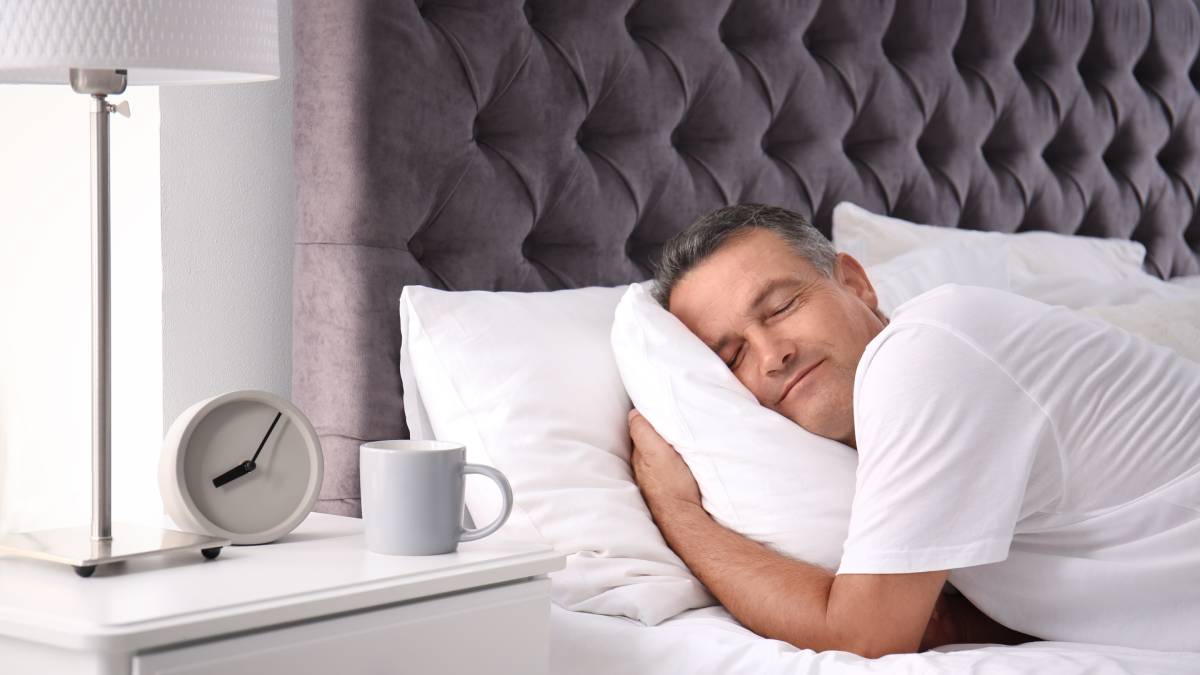It’s the nightly goal, the figure considered by most as ideal – seven to eight hours’ sleep, straight. But is it ideal, especially as you age? Or even possible?
Certainly in ages past, and for some cultures even present, the idea of eight hours of uninterrupted sleep would be considered unthinkable.
Before the industrial revolution, interrupted sleep was common. People would wake in the middle of the night, complete a few tasks and then go back to bed for a few more hours of shuteye.
Sleep historian Roger Ekirch, of Virginia Tech, has found hundreds of historic references to the ‘bimodal’ sleep pattern.
Read: Dos and Don’ts after a bad night’s sleep
“The dominant form of sleep from time immemorial has consisted of segmented sleep,” said Prof. Ekirch.
“The way we sleep today is a remarkably recent phenomenon, the consequence of modern technology – bathing ourselves in electric light, which reconfigures the human body clock – coupled with cultural priorities that regard sleep as a necessary evil.
“Unlike the seamless slumber we strive to achieve, sleep once commonly consisted of two major intervals – a ‘first sleep’ and a ‘second sleep’, bridged after midnight by an hour or more of wakefulness in which people did practically everything imaginable.”
Sleep Health Foundation CEO Dr Moira Junge says interrupted sleep is quite common. In fact, most people don’t sleep the whole night through.
“We go through these one-and-a-half hour sleep cycles,” she says. “When we come out of these cycles, it’s like a wake state that most of us don’t remember – we just go straight back down again and in the morning we’ll report that we slept all night.”
Associate Professor Delwyn Bartlett, a sleep specialist from the Woolcock Institute of Medical Research and the University of Sydney, says interrupted sleep is perfectly natural.
“We only spend 20 per cent of the night in deep sleep and as we age that 20 per cent is diminished.”
Many Mediterranean cultures still practise the ‘siesta’ way of sleeping – napping in the heat of the day and staying up later at night.
And then there are the elite sleepers – technically known as familial natural short sleepers – people who happily thrive on only a few hours of sleep. The condition is often seen as a habit of overachievers, but is actually a genetic mutation, researchers say.
Famous elite sleepers are Thomas Edison, Barack Obama, Martha Stewart, Margaret Thatcher and Donald Trump.
Read: Can your sleep age predict how long you will live?
However, while there are high achievers on that list, experts don’t recommend trying to emulate this cohort as lack of sleep can lead to obesity, mental health problems, high blood pressure and lower sex drive.
Whatever your sleep pattern, if you don’t believe you’re getting enough sleep, Australia’s Sleep Health Foundation has several tips to improve your sleep.
Develop a regular sleep pattern
Try to go to bed about the same time every evening and get up at around the same time every morning. Improved sleep will not happen as soon as changes are made. But if good sleep habits are maintained, sleep will certainly get better.
Spend the right amount of time in bed
Most adults need about seven to eight hours of sleep every night. Unless you have lengthy sleep requirements, limit your time in bed to no more than 8.5 hours. If you often take hours to fall asleep, go to bed later.
Bed is for sleeping, not entertainment
Hand-held electronic devices (e.g., smartphones) and other distractions can interfere with your sleep. It is better not to sleep with your TV or other devices on. Your mind needs to be in the habit of knowing that if you are in bed, you are there to sleep. Don’t stay in bed if you are wide awake.
Wind down and relax before going to bed
Have a buffer zone before bedtime. Sort out any problems well before going to bed. That may mean setting aside a ‘worry time’ during the day. Use this time to go over the day’s activities and work out a plan of action for the next day.
Exercise is fine, but not too late in the evening. Find a relaxation technique that works for you and practise it regularly during your wind-down period.
Read: Green tea shown to slow memory decline
Make sure your bedroom is comfortable
You should have a quiet, dark room with comfortable bedding and good temperature control.
Avoid alcohol, caffeine and cigarettes
Alcohol may help you to get off to sleep, but will disrupt your sleep during the night. Caffeine (tea, coffee, cola drinks) and the nicotine in cigarettes can keep you awake.
Avoid daytime naps
Sleeping during the day will make it more difficult to sleep well at night. If a nap is absolutely necessary then limit it to about 20 minutes. Make sure that you’ve been awake for at least four hours before going back to bed. Don’t allow yourself to fall asleep in front of the TV – not even for a minute.
Don’t lie awake watching the clock
Watching the clock just makes you anxious. If you need a clock for an alarm, turn it around so that you can’t see the time. Resist the temptation to look at the time on your various electronic devices. These should ideally be charged overnight outside of the bedroom.
Do you get eight hours’ sleep most nights? Or is it common for you to have interrupted sleep? What are your tips for a good night’s sleep? Why not share your suggestions in the comments section below?

